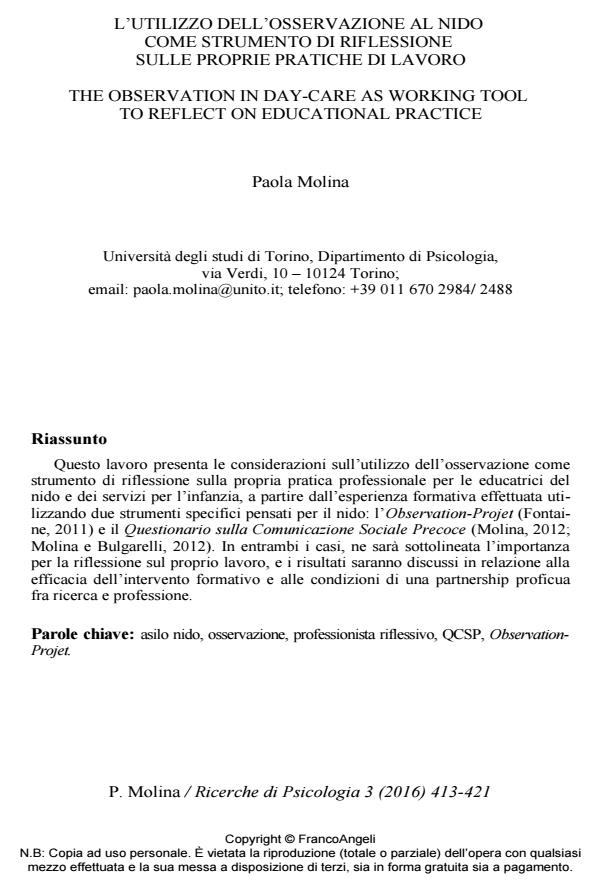The observation in day-care as working tool to reflect on educational practice
Journal title RICERCHE DI PSICOLOGIA
Author/s Paola Molina
Publishing Year 2016 Issue 2016/3
Language Italian Pages 9 P. 413-421 File size 195 KB
DOI 10.3280/RIP2016-003010
DOI is like a bar code for intellectual property: to have more infomation
click here
Below, you can see the article first page
If you want to buy this article in PDF format, you can do it, following the instructions to buy download credits

FrancoAngeli is member of Publishers International Linking Association, Inc (PILA), a not-for-profit association which run the CrossRef service enabling links to and from online scholarly content.
This paper presents the considerations on the use of observation as a tool for reflection on their professional practice to the teachers of the nursery and childcare services, starting from the experience of training performed using two specific tools designed for the day-cares: the Observation-Projet (Fontaine, 2011) and the Questionario sulla Comunicazione Sociale Precoce (Molina, 2012; Molina and Bulgarelli, 2012). In both cases, it will stress the importance of observation for child care professional to reflect on their work, and the results will be discussed in relation to the training intervention effectiveness and the conditions for a fruitful partnership between research and professional practice.
Keywords: Day-care, observation, reflective pratictioner, QCSP, Observation-Projet
- Phenomenological Pedagogy Nicoletta Ghigi, Valeria Bizzari, Moira Sannipoli, pp.99 (ISBN:978-3-031-87967-8)
- Social Cognition in Preschoolers: Effects of Early Experience and Individual Differences Daniela Bulgarelli, Paola Molina, in Frontiers in Psychology /2016
DOI: 10.3389/fpsyg.2016.01762
Paola Molina, L’utilizzo dell’osservazione al nido come strumento di riflessione sulle proprie pratiche di lavoro in "RICERCHE DI PSICOLOGIA " 3/2016, pp 413-421, DOI: 10.3280/RIP2016-003010